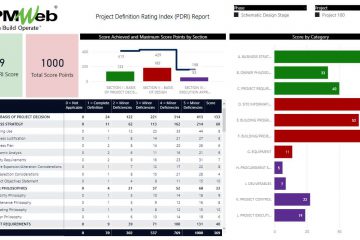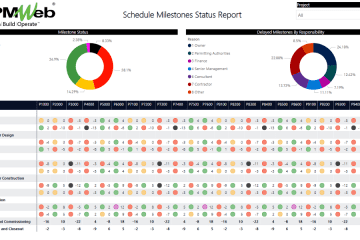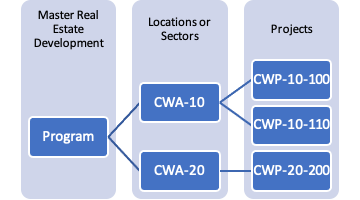Advanced Work Packaging (AWP) is a process for defining, aligning, sequencing, and pacing EPC packages’ execution that allows the project’s facilities to be designed and built more predictably. Advanced Work Packaging (AWP) starts with defining the Project’s Construction Work Areas (CWA) to establish the Construction Work Packages (CWP) within each area and aligns associated engineering work packages (EWP) with procurement work packages (PWP). This will populate the construction work packages with all the drawings and materials and gets them ready to be carved into Installation work packages (IWP) to be used by the construction team.

Having a Project Management Information System (PMIS) like PMWeb will enable organizations to implement advanced work packaging best practices using a single web-enabled platform to manage, monitor, evaluate and report on the information associated with AWP, including the performance indices that will be generated from the captured information. For example, the PMWeb document management repository will create folders to match the construction work areas (CWA) established for the project. Under each CWA folder, folders for the relevant engineering work packages, procurement work packages, and construction work packages will be created. Finally, folders for the installation work packages will be added under their relevant construction work package. Permissions can be set for each work package folder and sub-folder to limit access for uploaded documents. Also, attributes can be added for each folder to capture the needed information for uploaded documents. PMWeb allows uploading all files, including Revit BIM files, where PMWeb allows viewing the BIM model, reviewing properties, and taking snapshots. PMWeb also allows uploading and tracking versions by using the checkout and check-in commands. This enables selecting the option to view all versions or only the latest version.
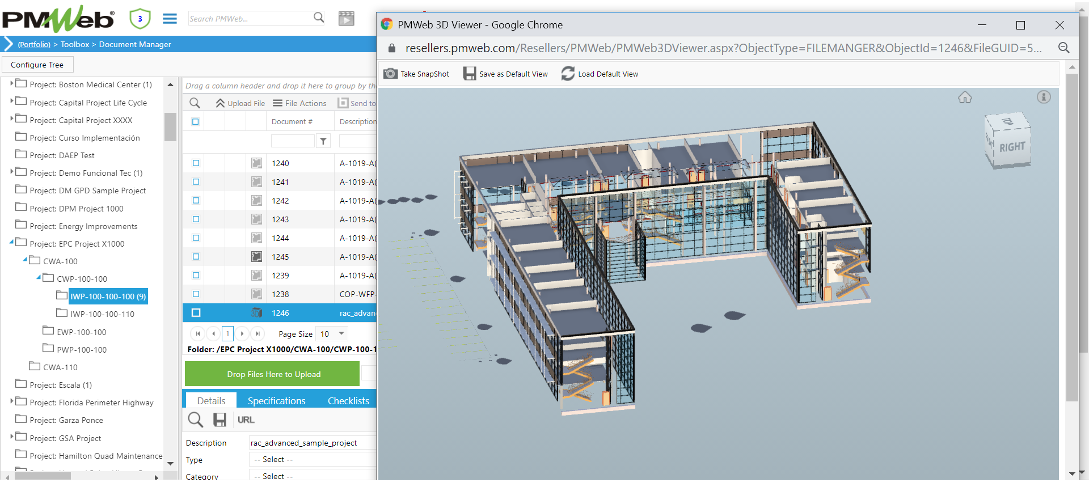
In addition, PMWeb custom form builder will be used to create the checklists needed for Installation Work Packages (IWP). The checklist, which will be unique for each type of work, will include the details of the relevant construction work area, project discipline, engineering, procurement, and construction work packages, and the installation work package for which the checklist was prepared for. The checklist will contain all of the information needed to execute the work scope associated with the IWP.
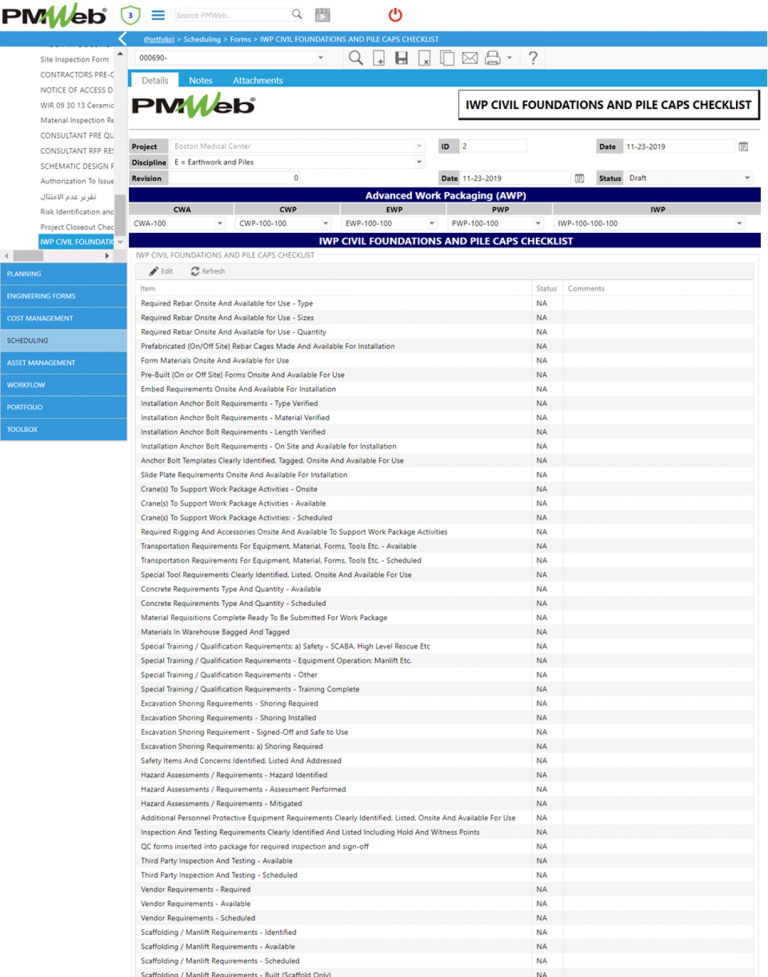
The attachment tab will be used to attach all documents referenced on the checklist which should be uploaded and stored in the relevant IWP folder in PMWeb document management repository. In addition, links to related PMWeb records as well as imported MS Outlook email can be added.
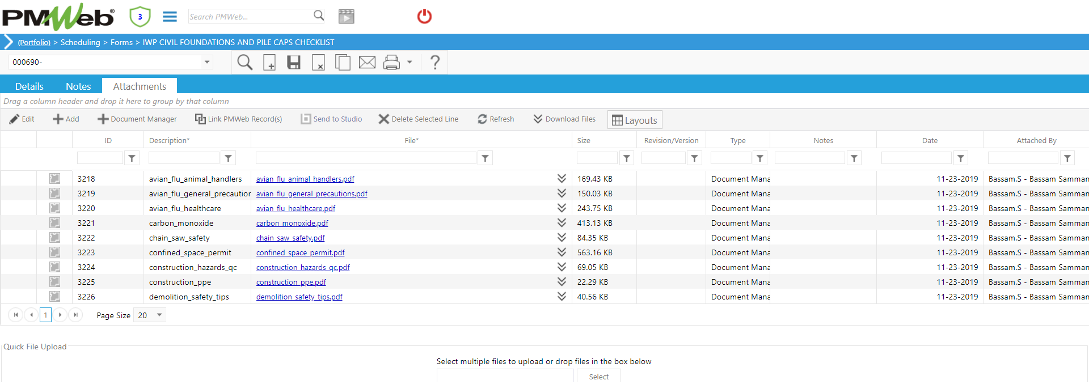
The IWP Checklist form workflow will ensure that the checklist is reviewed and approved by the right project team members. The workflow will identify all needed steps, each step’s duration, responsibility for each step, actions that can be taken for each step, and sequence for performing those steps. The workflow steps will be aligned with the IWP Checklist form’s permissions to ensure that designated project team members are providing the information they need to provide. PMWeb also allows adding conditions to the workflow steps to incorporate the approval authority levels.
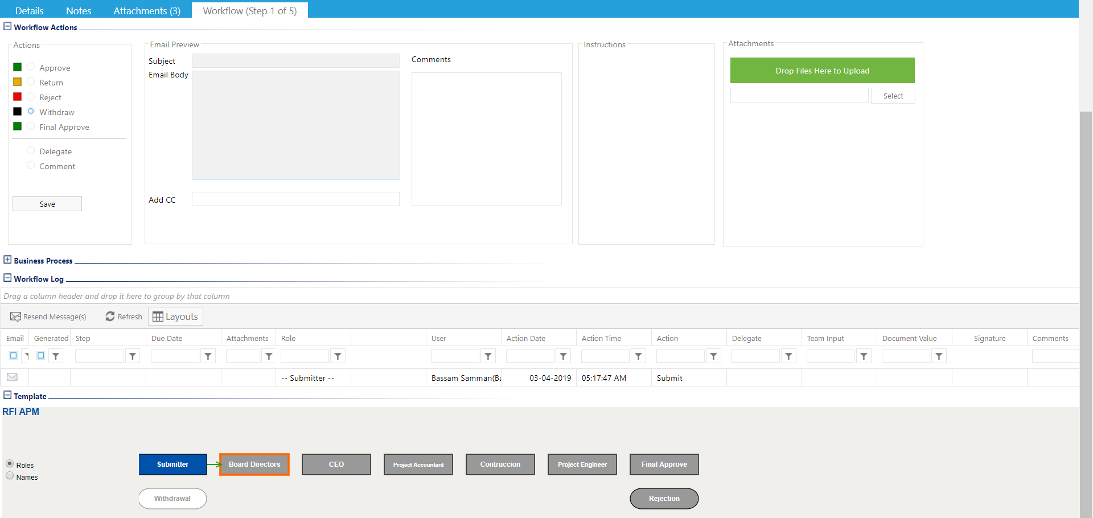
In addition, PMWeb cost management modules will be used to capture the data needed to report the engineering, procurement, and construction packages’ cost performance. This will require managing the estimated budget, budget adjustments, actual cost, and change orders associated with each work package that is the basis for calculating Cost Growth, Budget Factor, Net Variation Over Final Cost and Cost Per Unit at Completion.
Further, PMWeb will implement the project management processes needed to report the schedule, safety, quality, productivity, and predictability performance indices. The default PMWeb modules for safety incidents and daily reports will provide the information needed to report safety and productivity indices. On the other hand, PMWeb custom form builder will be used to create the forms for non-compliance reports, risk identification as well as other safety, quality, and other forms needed to report work packages performance indices.
In addition, PMWeb custom form builder will create the templates from Engineering, Procurement and Construction Work Packages and other templates needed for implementing the Advanced Work Packaging (AWP) best practices.
